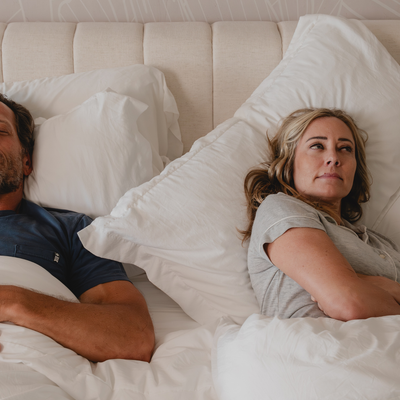June 5, 2023
Written by Scott Baylon
Continuous Positive Airway Pressure (CPAP) therapy is considered the gold standard treatment for sleep apnea, a common sleep disorder affecting millions of individuals.
Despite its effectiveness in improving sleep quality and overall health, some people hesitate to embrace CPAP therapy due to various fears and concerns.
In other words, CPAP works! But people won't try it. So, let's take a look at the top five fears that keep people from starting CPAP therapy and we'll ease your worries.
1. Fear of Discomfort and Claustrophobia:
One common fear is the perceived discomfort and claustrophobia associated with wearing a CPAP mask. Some people worry that the mask will feel suffocating or restrict their movement during sleep. However, it's important to note that CPAP masks have come a long way in terms of design and comfort. Modern masks are lightweight, adjustable, and come in different styles to accommodate your preferences. Trying different mask options, such as nasal masks, nasal pillows, or full-face masks, can help find the most comfortable fit for you. Additionally, practicing wearing the mask during the daytime can gradually acclimate you to the sensation, easing any claustrophobic tendencies.
With Lofta, clients can work with our team to find the best mask style for them. If it doesn't work out? We make it easy to exchange.
2. Concerns About Noise and Disruption:
Another fear revolves around the noise produced by CPAP machines. You might worry that the sound may disrupt your sleep or your partner's sleep. However, most CPAP machines operate at low noise levels, and current technological advancements have significantly reduced noise output. It's important to remember that the benefits of improved sleep quality and overall health often outweigh the minor noise concerns.
And for some, the machine is quieter than the snoring!
3. Anxiety About Machine Maintenance and Care:
Others express anxiety about the maintenance and care required for CPAP machines and masks. They worry that the cleaning process may be time-consuming or complicated. However, taking care of CPAP equipment is relatively straightforward. Regularly cleaning the mask, tubing, and humidifier chamber with mild soap and water can ensure proper hygiene and prevent respiratory issues. Additionally, manufacturers often provide user-friendly instructions and support resources to guide you through the maintenance process. Embracing a routine and incorporating it into your daily or weekly schedule can help alleviate maintenance-related concerns.
Plus, Lofta offers subscriptions for replacement parts and cleaning supplies. Automatic shipments and zero hassle.
4. Social Stigma and Embarrassment:
The fear of social stigma and embarrassment can be a significant barrier to embracing CPAP therapy. Some people worry about how they will be perceived by others when using a CPAP machine, particularly when traveling or sharing sleeping spaces. It's crucial to remember that sleep apnea is a common condition, and CPAP therapy is a recognized treatment. Educating yourself about sleep apnea and the benefits of CPAP therapy can empower you to confidently address any potential concerns or questions from others. Many modern CPAP machines are also sleek and compact, making them more discreet and portable.
And remember, just because it's in the bedroom, you only wear the mask while you're sleeping.
5. Adjustment Challenges and Fear of Non-Compliance:
Starting CPAP therapy can come with an adjustment period. Lots of people fear that they won't be able to adapt to wearing the mask or using the machine consistently, leading to non-compliance with the therapy. However, with proper guidance and support, most people can successfully adapt to CPAP therapy. Working closely with sleep specialists, respiratory therapists, or support groups can provide valuable insights, tips, and encouragement. Additionally, gradually increasing the duration of CPAP usage each night and focusing on the positive outcomes can help overcome initial adjustment challenges.
Lofta has a full team of respiratory therapists and client care specialists to assist you in making the adjustment. Our success rate is much higher than individuals doing it all on their own.
Conclusion:
CPAP therapy is a highly effective treatment for sleep apnea, but fears and concerns often hinder individuals from embracing it. Have any more questions? Please don't hesitate to contact us at 800-698-8000 or shoot us an email at sleep@lofta.com












































